Find Help
More Items From Ergsy search
-

Type 1 Diabetes supporting adults to manage Type 1 diabetes
Relevance: 100%
-
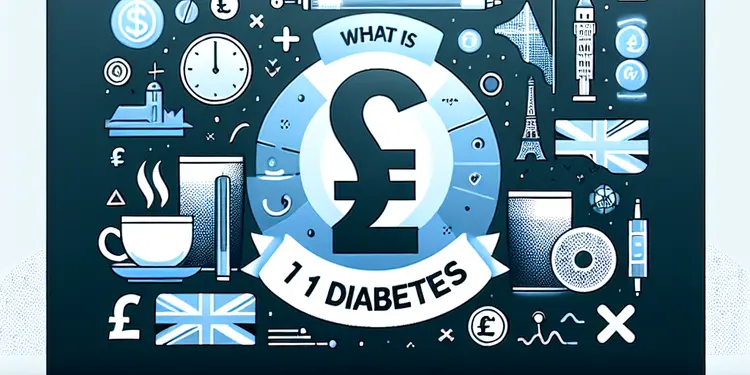
What is type 1 diabetes?
Relevance: 99%
-

Is Type 2 Diabetes hereditary?
Relevance: 99%
-
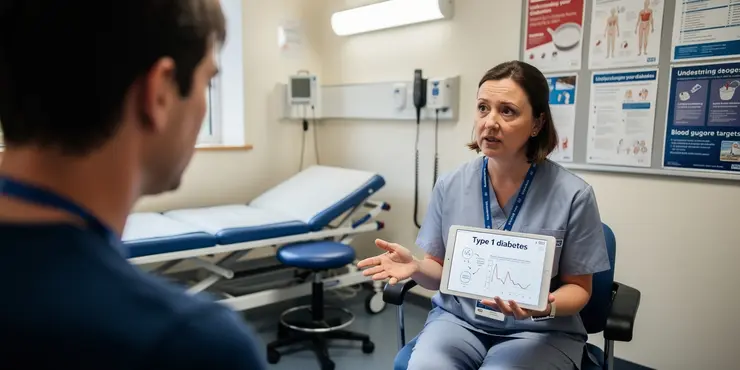
What is type 1 diabetes?
Relevance: 98%
-
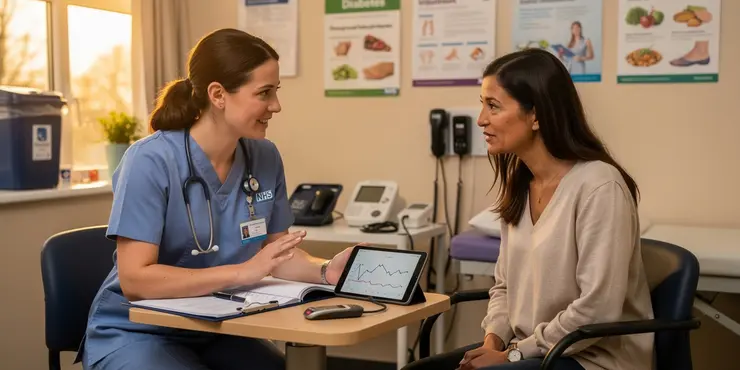
What Is Type 2 Diabetes? | 2 Minute Guide | Diabetes UK
Relevance: 95%
-

What is the difference between type 1 and type 2 diabetes?
Relevance: 95%
-
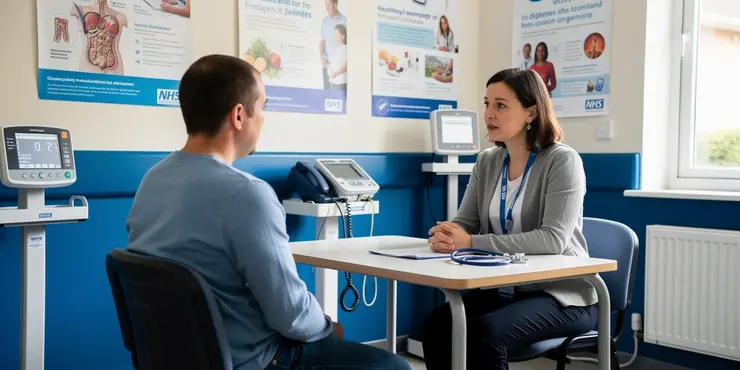
Is Ozempic suitable for type 1 diabetes?
Relevance: 94%
-

Is there a genetic predisposition to type 1 diabetes?
Relevance: 94%
-

What causes Type 2 Diabetes?
Relevance: 93%
-
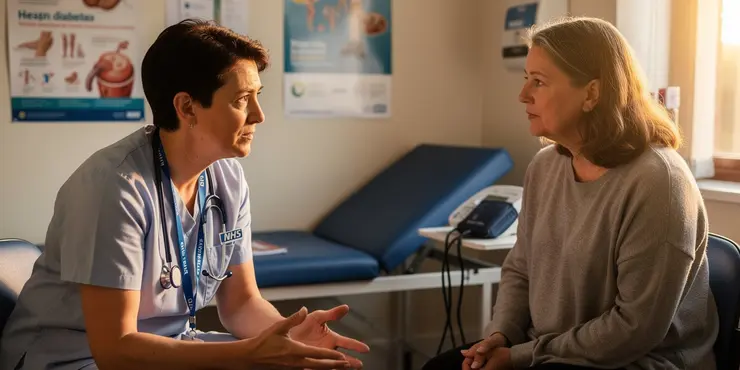
Can Type 2 Diabetes go away?
Relevance: 93%
-
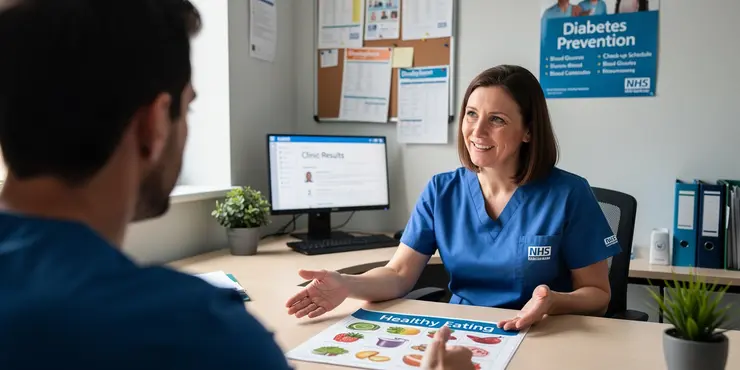
Can Type 2 Diabetes be prevented?
Relevance: 93%
-
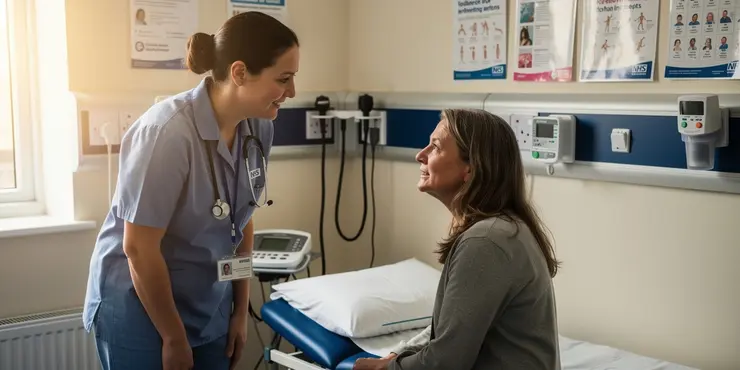
What are the symptoms of Type 2 Diabetes?
Relevance: 92%
-

How is Type 2 Diabetes diagnosed?
Relevance: 92%
-

How to manage type 2 diabetes
Relevance: 92%
-

Can Mounjaro be used in type 1 diabetes?
Relevance: 90%
-
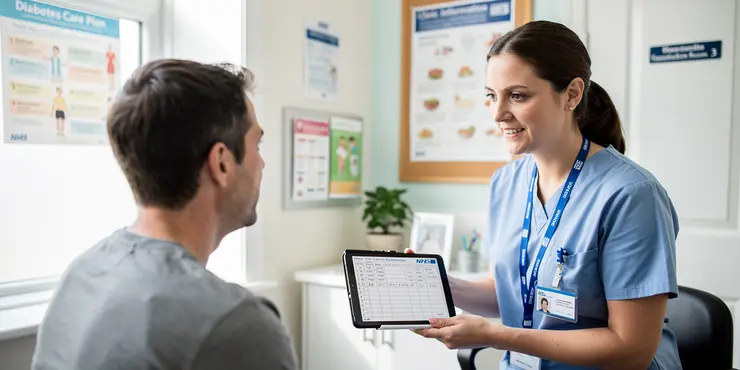
How is Type 2 Diabetes treated?
Relevance: 89%
-
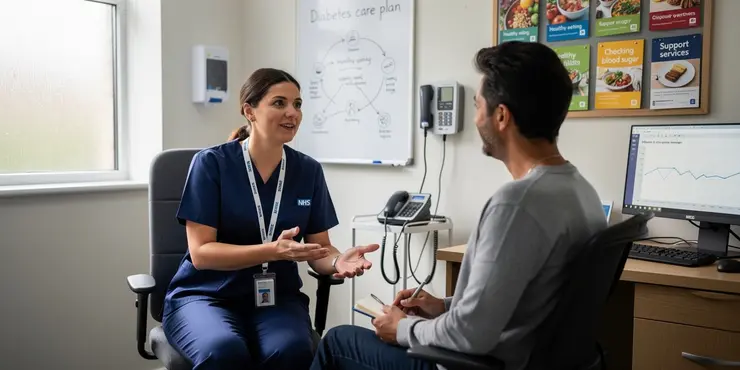
What complications are associated with Type 2 Diabetes?
Relevance: 88%
-

Should I screen my child for type 1 diabetes?
Relevance: 88%
-
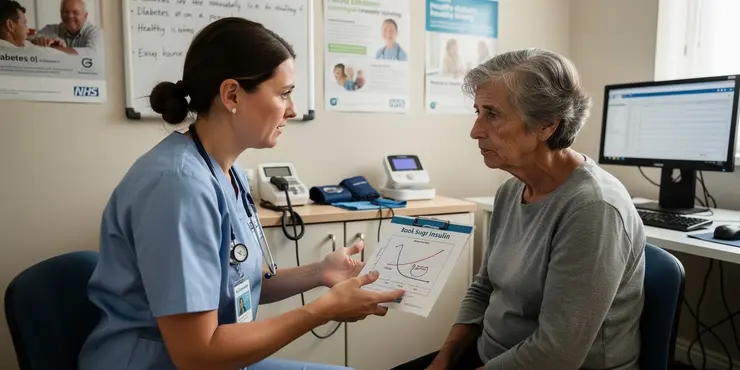
What is the role of insulin in Type 2 Diabetes?
Relevance: 88%
-

What are the limitations of type 1 diabetes screening?
Relevance: 88%
-
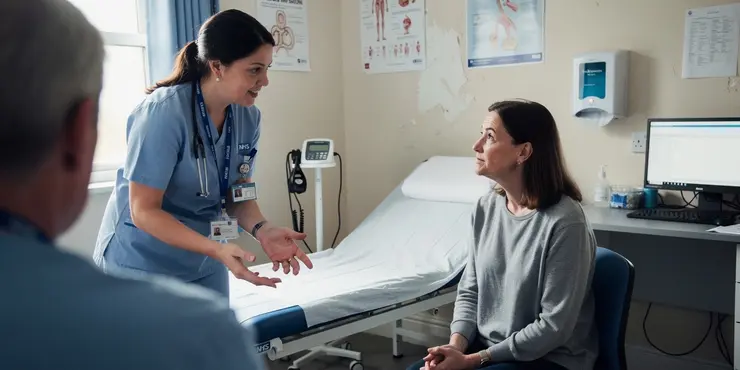
Can stress affect my Type 2 Diabetes?
Relevance: 87%
-

Is Wegovy used for type 2 diabetes management?
Relevance: 86%
-

Can environmental factors contribute to type 1 diabetes?
Relevance: 85%
-

What does screening for type 1 diabetes involve?
Relevance: 85%
-

How accurate are the tests for predicting type 1 diabetes?
Relevance: 84%
-

Are there any clinical trials for preventing type 1 diabetes?
Relevance: 84%
-

Does insurance cover type 1 diabetes screening?
Relevance: 84%
-

What are the benefits of early detection of type 1 diabetes?
Relevance: 82%
-

Where can I have my child screened for type 1 diabetes?
Relevance: 82%
-
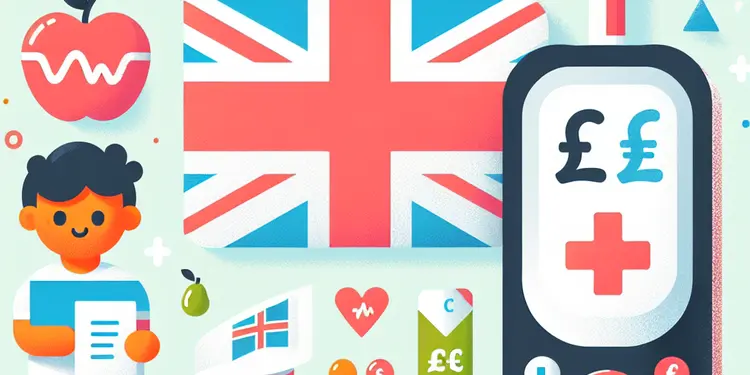
At what age should my child be screened for type 1 diabetes?
Relevance: 82%
-
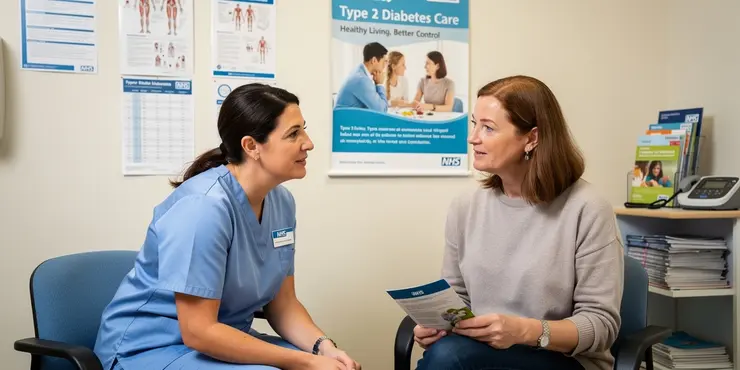
Where can I find support for managing Type 2 Diabetes in the UK?
Relevance: 82%
-
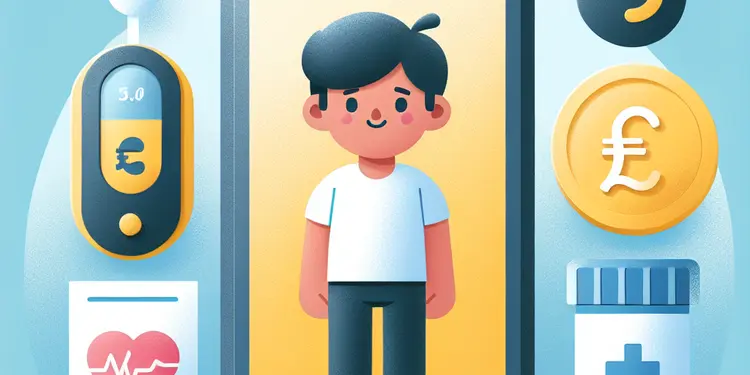
Why should I consider screening my child for type 1 diabetes?
Relevance: 81%
-

Are there any symptoms of type 1 diabetes I should watch for in my child?
Relevance: 81%
-
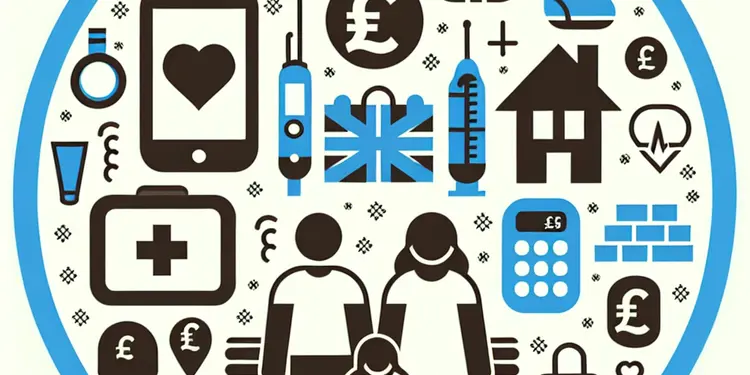
What support is available for families dealing with type 1 diabetes?
Relevance: 81%
-

Should siblings of a child with type 1 diabetes also be screened?
Relevance: 80%
-
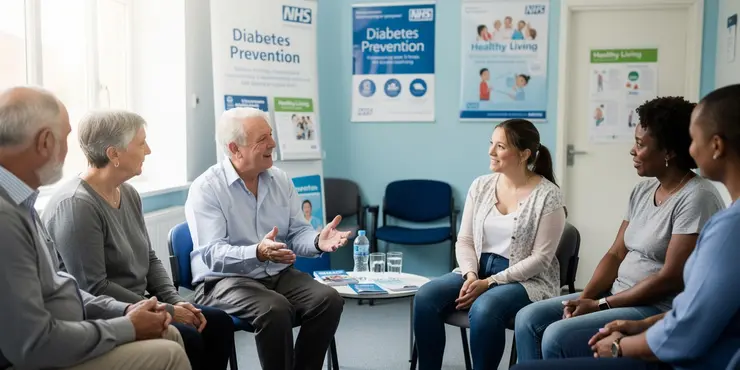
NHS Diabetes Prevention Programme; Preventing Type 2 and improving outcomes for people with diabetes
Relevance: 80%
-
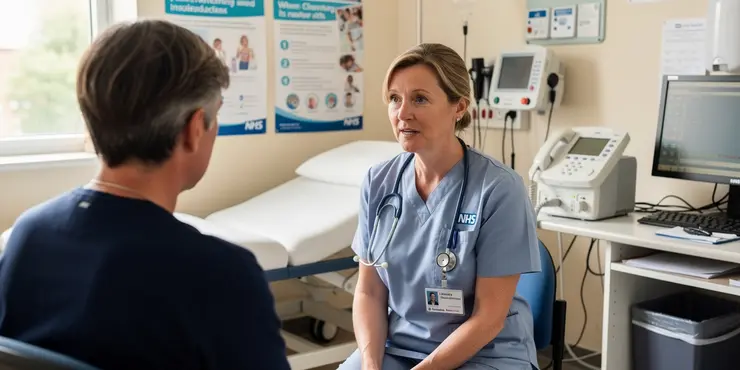
Type 2 diabetes - common signs and symptoms UHL NHS Trust
Relevance: 78%
-

What can I eat if I have Type 2 Diabetes?
Relevance: 76%
-

What lifestyle changes can lower my child's risk of type 1 diabetes?
Relevance: 76%
-

Patient voices in type one diabetes - I would have done things differently.
Relevance: 72%
What is Type 1 Diabetes?
Understanding Type 1 Diabetes
Type 1 Diabetes is a chronic condition where the pancreas produces little or no insulin, a hormone essential for allowing glucose (sugar) to enter cells and produce energy. Unlike type 2 diabetes, which can develop at any age, type 1 diabetes typically manifests during childhood or adolescence, although it can also emerge in adults.
Causes and Risk Factors
The exact cause of Type 1 Diabetes is not fully understood, but it is believed to be an autoimmune condition. This means that the immune system mistakenly attacks and destroys the insulin-producing beta cells in the pancreas. Genetic factors and environmental triggers, such as viruses, may also play a role in the development of this condition.
Symptoms
The symptoms of Type 1 Diabetes can appear suddenly and may include increased thirst and urination, extreme hunger, unintended weight loss, fatigue, blurred vision, and, in severe cases, diabetic ketoacidosis, a life-threatening condition. Early diagnosis and treatment are crucial to managing these symptoms and preventing complications.
Treatment and Management
Managing Type 1 Diabetes involves a combination of insulin therapy, dietary management, and regular physical activity. Insulin can be administered through multiple daily injections or an insulin pump. Blood glucose levels must be monitored regularly to ensure they remain within a target range. Education and support from healthcare providers are also vital for effective self-management.
Living with Type 1 Diabetes in the United Kingdom
In the United Kingdom, the National Health Service (NHS) provides comprehensive care and support for individuals living with Type 1 Diabetes. This includes access to diabetes specialists, diabetes education programmes, psychological support, and advanced treatments such as continuous glucose monitors (CGMs) and insulin pumps. Organisations such as Diabetes UK also offer resources and advocacy for those affected by this condition.
Conclusion
Type 1 Diabetes is a serious but manageable condition with the right treatment and lifestyle adjustments. By understanding its causes, recognising symptoms, and accessing appropriate care, individuals living with Type 1 Diabetes in the UK can lead healthy and fulfilling lives.
What is Type 1 Diabetes?
Understanding Type 1 Diabetes
Type 1 Diabetes is a long-term health problem. It happens when the pancreas does not make insulin. Insulin is important because it helps sugar from food give our bodies energy. Type 1 Diabetes usually starts in children or teens, but adults can get it too.
Causes and Risk Factors
We don't know exactly why people get Type 1 Diabetes. It might happen because the body attacks itself by mistake. This is called an autoimmune condition. Genes and things like viruses might also cause it.
Symptoms
Type 1 Diabetes can make you very thirsty, need to pee a lot, and feel very hungry. You might lose weight without trying and feel very tired. You could also have blurry eyesight. If it gets really bad, it can be life-threatening and you need to get help right away. It's important to see a doctor if these signs show up.
Treatment and Management
To take care of Type 1 Diabetes, you need to use insulin. You can get insulin with shots or a machine called an insulin pump. You also need to eat healthy and stay active. Checking your blood sugar is important too. Learning about Type 1 Diabetes and getting help from doctors is very important.
Living with Type 1 Diabetes in the United Kingdom
In the UK, the NHS helps people with Type 1 Diabetes. They have experts and programmes to teach you about diabetes. You can also get special tools like monitors to check your blood sugar and insulin pumps. Diabetes UK is a group that helps people with diabetes and gives information.
Conclusion
Type 1 Diabetes is serious, but you can manage it with the right help and lifestyle. By knowing the causes, watching for signs, and getting good care, people in the UK with Type 1 Diabetes can live healthy and happy lives.
Frequently Asked Questions
What is Type 1 diabetes?
Type 1 diabetes is a chronic condition in which the pancreas produces little or no insulin. Insulin is a hormone needed to allow sugar (glucose) to enter cells to produce energy.
How is Type 1 diabetes different from Type 2 diabetes?
Type 1 diabetes is an autoimmune condition where the body's immune system attacks insulin-producing cells in the pancreas. Type 2 diabetes is more commonly associated with lifestyle factors and typically occurs when the body becomes resistant to insulin or the pancreas fails to produce enough insulin.
What are the symptoms of Type 1 diabetes?
Common symptoms include excessive thirst, frequent urination, extreme hunger, unintended weight loss, fatigue, and blurred vision. If you experience these symptoms, you should consult a healthcare professional.
How is Type 1 diabetes diagnosed?
Type 1 diabetes is typically diagnosed through blood tests that measure blood sugar levels. Tests may include the fasting blood sugar test, HbA1c test, and sometimes an autoantibody test to confirm the diagnosis.
What causes Type 1 diabetes?
The exact cause of Type 1 diabetes is unknown, but it is believed to involve a combination of genetic and environmental factors. It is an autoimmune condition, meaning the body's immune system mistakenly attacks healthy cells in the pancreas.
Can Type 1 diabetes be prevented?
Currently, there is no known way to prevent Type 1 diabetes. Research is ongoing to find ways to prevent or delay the onset of the disease.
How is Type 1 diabetes managed?
Management of Type 1 diabetes involves regular monitoring of blood sugar levels, administering insulin through injections or an insulin pump, maintaining a balanced diet, and engaging in regular physical activity.
What are the complications associated with Type 1 diabetes?
Complications can include cardiovascular disease, nerve damage (neuropathy), kidney damage (nephropathy), eye damage (retinopathy), and foot damage. Proper management can help reduce the risk of these complications.
How often should I check my blood sugar levels?
Frequency of blood sugar checking can vary based on individual circumstances, but generally, it is recommended to check several times a day. Your healthcare team can provide specific guidance tailored to your needs.
What dietary considerations should I follow with Type 1 diabetes?
A balanced diet that includes carbohydrates, proteins, and fats is important. Counting carbohydrates and understanding how different foods affect blood sugar levels can help in managing the condition. Consulting with a dietitian may be beneficial.
Is Type 1 diabetes hereditary?
There is a genetic component to Type 1 diabetes, which means it can run in families. However, having a family member with Type 1 diabetes does not guarantee that you will develop it.
What role does exercise play in managing Type 1 diabetes?
Regular physical activity helps control blood sugar levels, improve cardiovascular health, and maintain a healthy weight. It is important to monitor blood sugar before, during, and after exercise to prevent hypoglycemia.
Can people with Type 1 diabetes live normal lives?
Yes, individuals with Type 1 diabetes can lead normal and fulfilling lives. With proper management and regular monitoring, they can engage in most activities just like anyone else.
What is an insulin pump, and how does it work?
An insulin pump is a small electronic device that delivers a continuous supply of insulin through a catheter placed under the skin. It helps maintain blood sugar levels by providing a steady stream of insulin throughout the day.
Are there any new treatments for Type 1 diabetes?
Research is ongoing, and there are advancements in treatments, including artificial pancreas systems, continuous glucose monitors (CGMs), and islet cell transplantation. Always consult your healthcare provider for the latest information and treatments available.
What is Type 1 diabetes?
Type 1 diabetes is when your body can't make something called insulin. Insulin helps your body use sugar from food for energy. When you don't have insulin, sugar stays in your blood instead of going to your body cells.
If you have Type 1 diabetes, you need to get insulin from a needle or a pump. This helps keep your blood sugar safe.
It's important to talk to a doctor if you have Type 1 diabetes so they can help you stay healthy.
Using pictures and videos can help you learn more. You can also ask someone you trust to explain things you don’t understand.
Type 1 diabetes is when the body can't make insulin. Insulin is something your body needs to help sugar get into your cells. Your cells use sugar for energy.
What is the difference between Type 1 and Type 2 diabetes?
Type 1 diabetes: The body cannot make insulin. Insulin is important because it helps the body use sugar for energy. People with Type 1 diabetes need to take insulin every day.
Type 2 diabetes: The body has trouble using insulin or does not make enough insulin. This means sugar builds up in the blood. People with Type 2 diabetes may need to take medicine or change their diets to control their blood sugar.
Helpful tips: Use pictures or videos to learn more about diabetes. Talk to a doctor or nurse if you have questions.
Type 1 diabetes happens when the body attacks the cells that make insulin in the pancreas.
Type 2 diabetes usually happens because of lifestyle choices. It can occur when the body doesn't use insulin well or when the pancreas doesn't make enough insulin.
Support tools like talking with a doctor, eating healthy, and exercising can help manage diabetes.
What are the signs of Type 1 diabetes?
Here are some signs you might notice:
- Feeling really thirsty all the time.
- Going to the toilet to pee a lot.
- Feeling very hungry.
- Losing weight without trying.
- Feeling really tired.
- Having trouble seeing clearly.
If you notice these signs, talk to a doctor or nurse for help.
For reading help, try using audiobooks or text-to-speech tools.
How do doctors know if you have Type 1 diabetes?
Doctors can find out if you have Type 1 diabetes by doing some tests. These tests check how much sugar is in your blood.
Here’s how it works:
- Blood Test: Doctors take a small amount of your blood to check the sugar levels.
- Symptoms: Doctors also ask if you feel thirsty a lot, need to pee often, or feel very tired. These can be signs of Type 1 diabetes.
- Special Test: Sometimes, doctors do another test to see how your body uses sugar.
If you need help understanding, you can ask a parent, teacher, or doctor. There are also apps and pictures that can make learning about diabetes easier.
Doctors use blood tests to find out if someone has type 1 diabetes. These tests check how much sugar is in the blood. Some tests are: the fasting blood sugar test, the HbA1c test, and sometimes an autoantibody test to be sure.
What makes Type 1 diabetes happen?
We don't know exactly what causes Type 1 diabetes. It might happen because of genes you get from your parents and things around you. Type 1 diabetes is an illness where the body's own system that fights germs attacks healthy parts of the body by mistake. This happens in a part of the body called the pancreas, which helps with controlling sugar.
Can we stop Type 1 diabetes before it starts?
Type 1 diabetes is a condition that you are born with. It means your body does not make something called insulin, which helps keep your blood sugar at the right level.
Right now, doctors do not know how to stop Type 1 diabetes from happening. But they are working hard to find ways to help.
Here are some things that can help:
- Going to the doctor regularly for check-ups.
- Learning about diabetes and how to manage it.
- Using tools like glucose meters to check blood sugar.
Right now, we don't know how to stop Type 1 diabetes from happening. Scientists are working hard to find ways to stop or slow down the disease.
How do you take care of Type 1 diabetes?
Taking care of Type 1 diabetes means keeping your blood sugar levels in balance. Here are some simple ways to do this:
- Check Blood Sugar: Use a small device to check how much sugar is in your blood. Do this a few times a day.
- Take Insulin: Insulin helps to lower blood sugar. You can take it with a needle, insulin pen, or a pump. Your doctor will help you know how much to take.
- Eat Healthy Foods: Eat fruits, vegetables, and whole grains. Try not to eat too much sugar or junk food.
- Exercise: Move your body every day by playing, walking, or dancing. Exercise helps to keep your blood sugar levels steady.
- Talk to Doctors: Regular visits to doctors will help you learn how to take care of your health better.
If you find reading hard, ask someone for help or use a reading tool that reads the text out loud. You can also use a picture guide or app that helps explain diabetes.
Taking care of Type 1 diabetes means checking your blood sugar often. You also need to take insulin with a needle or a pump. It's important to eat healthy foods and exercise regularly.
What problems can happen with Type 1 diabetes?
Sometimes, health problems can happen. These can be heart problems or damage to the nerves, kidneys, eyes, and feet. Taking care of yourself can help stop these problems from getting worse.
How often should I check my blood sugar?
Check your blood sugar as your doctor tells you. You might need to do it once or many times a day. It helps you know how you are doing.
Ask a nurse or doctor to help if you are not sure how to do it.
Using a chart or diary can help you keep track.
How often you check your blood sugar can be different for each person. But, most people should check it a few times each day. Your doctor or nurse can tell you exactly what is best for you.
What should I eat if I have Type 1 diabetes?
Eating well can help you feel good and stay healthy. Here are some tips:
- Eat a variety of foods: Try to eat different fruits, veggies, grains, and proteins.
- Watch your sugar intake: Try to eat less sugary foods like sweets and sugary drinks.
- Balance your meals: Have a mix of carbs, proteins, and fats in each meal.
- Check your blood sugar: Use a blood sugar monitor to see how foods affect you.
- Plan your meals: Plan meals to help manage your blood sugar levels.
- Ask for help: Talk to a doctor or dietitian for advice on what to eat.
These steps can help you manage Type 1 diabetes better.
It is important to eat different types of food. Your meals should have carbohydrates, proteins, and fats. Carbohydrates can change your blood sugar levels. Knowing how they work can help you stay healthy. Talking to a dietitian, who is a food expert, can also help you. They can give you advice on what to eat.
Can you get Type 1 diabetes from your family?
Type 1 diabetes can be passed down from parents to children. This means it can be in families. But just because someone in your family has Type 1 diabetes does not mean you will get it too.
How does exercise help people with Type 1 diabetes?
Exercise is moving your body to stay healthy.
For people with Type 1 diabetes, exercise can help in many ways:
- It helps keep blood sugar levels steady.
- It makes the body use insulin better.
- It can make you feel happier and less stressed.
- It helps your heart stay strong.
Always talk to your doctor before starting new exercises.
Here are some tips:
- Check your blood sugar before and after you exercise.
- Have a snack with you in case your blood sugar gets low.
- Drink water to stay hydrated.
- Wear comfortable clothes and shoes.
Doing exercise helps keep blood sugar at the right level. It is good for the heart and helps us stay at a healthy weight. You should check your blood sugar before, during, and after doing exercise to make sure it doesn't get too low.
Can people with Type 1 diabetes live normal lives?
Yes, people with Type 1 diabetes can live normal lives. They need to do some extra things every day to stay healthy.
- They need to check their blood sugar levels often.
- They need to take insulin medicine every day.
- They should eat healthy food.
- They should try to do some exercise.
There are tools and tips that can help:
- Blood sugar testing kits help check sugar levels.
- Insulin pumps give insulin when you need it.
- Doctors and nurses can give good advice.
- There are apps for diabetes to keep track of things.
With these steps, people with diabetes can feel good and do the things they love.
Yes, people with Type 1 diabetes can live normal and happy lives. With the right care and checking their health, they can do most things just like everyone else.
What is an insulin pump, and how does it work?
An insulin pump is a small machine that helps people with diabetes. It gives your body the insulin it needs.
How does it work? The pump is worn on your body. A tiny tube goes under your skin to give you insulin.
The pump can give insulin all the time or before meals. This helps keep blood sugar levels just right.
Some pumps can tell when sugar is too high or too low. They may beep to tell you or even give more insulin if needed.
If you have trouble reading, ask someone to read with you. You can also use apps that read text out loud.
An insulin pump is a small machine. It gives your body insulin all day. It does this through a tiny tube under your skin. This helps keep your blood sugar steady.
Are there new ways to help people with Type 1 diabetes?
Is there anything new to help people with Type 1 diabetes? Type 1 diabetes happens when the body can’t make insulin. Insulin helps turn sugar into energy.
Here are simple ways to learn more:
- Ask a doctor for help.
- Read simple books about diabetes.
- Watch videos for children about diabetes.
Doctors and scientists are always learning more. They are making new treatments for health problems. Some new tools include:
- Machines that work like a body part called the pancreas.
- Devices that check blood sugar all the time.
- Special cell transplants to help the body.
Always talk to your doctor. They can tell you about new ways to help you feel better.
Useful Links
This website offers general information and is not a substitute for professional advice.
Always seek guidance from qualified professionals.
If you have any medical concerns or need urgent help, contact a healthcare professional or emergency services immediately.
Some of this content was generated with AI assistance. We’ve done our best to keep it accurate, helpful, and human-friendly.
- Ergsy carfully checks the information in the videos we provide here.
- Videos shown by Youtube after a video has completed, have NOT been reviewed by ERGSY.
- To view, click the arrow in centre of video.
- Most of the videos you find here will have subtitles and/or closed captions available.
- You may need to turn these on, and choose your preferred language.
- Go to the video you'd like to watch.
- If closed captions (CC) are available, settings will be visible on the bottom right of the video player.
- To turn on Captions, click settings .
- To turn off Captions, click settings again.
More Items From Ergsy search
-

Type 1 Diabetes supporting adults to manage Type 1 diabetes
Relevance: 100%
-

What is type 1 diabetes?
Relevance: 99%
-

Is Type 2 Diabetes hereditary?
Relevance: 99%
-

What is type 1 diabetes?
Relevance: 98%
-

What Is Type 2 Diabetes? | 2 Minute Guide | Diabetes UK
Relevance: 95%
-

What is the difference between type 1 and type 2 diabetes?
Relevance: 95%
-

Is Ozempic suitable for type 1 diabetes?
Relevance: 94%
-

Is there a genetic predisposition to type 1 diabetes?
Relevance: 94%
-

What causes Type 2 Diabetes?
Relevance: 93%
-

Can Type 2 Diabetes go away?
Relevance: 93%
-

Can Type 2 Diabetes be prevented?
Relevance: 93%
-

What are the symptoms of Type 2 Diabetes?
Relevance: 92%
-

How is Type 2 Diabetes diagnosed?
Relevance: 92%
-

How to manage type 2 diabetes
Relevance: 92%
-

Can Mounjaro be used in type 1 diabetes?
Relevance: 90%
-

How is Type 2 Diabetes treated?
Relevance: 89%
-

What complications are associated with Type 2 Diabetes?
Relevance: 88%
-

Should I screen my child for type 1 diabetes?
Relevance: 88%
-

What is the role of insulin in Type 2 Diabetes?
Relevance: 88%
-

What are the limitations of type 1 diabetes screening?
Relevance: 88%
-

Can stress affect my Type 2 Diabetes?
Relevance: 87%
-

Is Wegovy used for type 2 diabetes management?
Relevance: 86%
-

Can environmental factors contribute to type 1 diabetes?
Relevance: 85%
-

What does screening for type 1 diabetes involve?
Relevance: 85%
-

How accurate are the tests for predicting type 1 diabetes?
Relevance: 84%
-

Are there any clinical trials for preventing type 1 diabetes?
Relevance: 84%
-

Does insurance cover type 1 diabetes screening?
Relevance: 84%
-

What are the benefits of early detection of type 1 diabetes?
Relevance: 82%
-

Where can I have my child screened for type 1 diabetes?
Relevance: 82%
-

At what age should my child be screened for type 1 diabetes?
Relevance: 82%
-

Where can I find support for managing Type 2 Diabetes in the UK?
Relevance: 82%
-

Why should I consider screening my child for type 1 diabetes?
Relevance: 81%
-

Are there any symptoms of type 1 diabetes I should watch for in my child?
Relevance: 81%
-

What support is available for families dealing with type 1 diabetes?
Relevance: 81%
-

Should siblings of a child with type 1 diabetes also be screened?
Relevance: 80%
-

NHS Diabetes Prevention Programme; Preventing Type 2 and improving outcomes for people with diabetes
Relevance: 80%
-

Type 2 diabetes - common signs and symptoms UHL NHS Trust
Relevance: 78%
-

What can I eat if I have Type 2 Diabetes?
Relevance: 76%
-

What lifestyle changes can lower my child's risk of type 1 diabetes?
Relevance: 76%
-

Patient voices in type one diabetes - I would have done things differently.
Relevance: 72%


